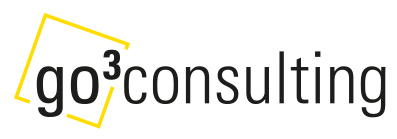Dear all,
to develop products successfully, it requires learning strategies and team alignment. The larger the product organisation becomes, the more important these factors are.
Objectives and Key Results are a proven means to steer the implementation and continuous adaptation of strategies. At the same time OKRs have proven to be a robust way to align larger organisations like e.g. Intel and Google.
Applying OKRs to product development therefore seems natural. Many – if not most – of the Silicon Valley tech giants use OKRs in their product organisations today.
The following three reads discuss different aspects of the application of OKRs to product development:
Team Objectives – Overview
Silicon Valley bedrock Marty Kagan is pretty adamant that using OKRs with old school feature teams is a waste of time and effort. This post is the entry point to a series of blog entries discussing multiple aspects from strategic context to accountability.
Alignment through OKR’s and Hypotheses
Anthony Murphy hates forcing alignment of product teams through bureaucracy and advocates using common goal posts in the form of OKRs and hypotheses.
How to Use Google’s OKR Framework to Prioritize Your Product Roadmap
Heather McCloskey discusses the application of OKRs to product roadmaps. She advocates turning user problems into OKRs and using the Objectives as strategic themes in your roadmap.
As always, I do not necessarily concur with all views put forward, but there’s lots that got me thinking…
Choose your goals for the weekend wisely!
Cheers,
Godehard

